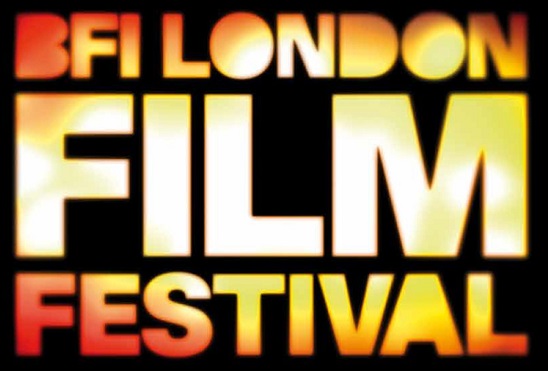The London Film Festival returned this week, and At close to £13 a pop, it’s not exactly cheap, which is why, like Theseus entering the Minotaur’s maze, we headed into Central London to see which films stand out this year. With about 250 in total, there’s a lot to choose from and, assuming that most people will have heard about, say, Brad Pitt’s Fury, we decided to look at some of the films attracting less fanfare.
National Diploma (dir: Dieudo Hamadi)
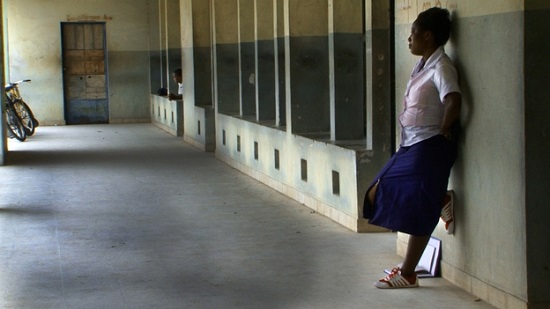
The myriad of injustices I suffered at school – being told to get a haircut, generally getting slapped about and so forth – actually seem pretty trivial in comparison with those faced by students in the Congolese city of Kisangani as they prepare to sit the all-important national exam. Dieudo Hamadi’s documentary shows an education system riddled with corruption: teachers demand cash payments despite having been on strike for long periods, while seniors convince younger students to buy past papers which may or may not be genuine. To overcome these obstacles, the students form an educational co-operative, relocating their studies to an abandoned house, and take part in group prayer sessions and even exorcisms to drive out evil spirits. The overwhelming sense is of a self-perpetuating cycle of exploitation which can never bode well for the deprived country. There is optimism in places, however, such as in the sensational scenes of downtown Kisangani on results day. But not everyone will be celebrating.
Wild Life (dir: Cédric Kahn)
French director Cédric Kahn’s intelligent drama centres on a traveller couple whose bitter separation has profound implications for their three boys. As the courts dither, Paco, played by Mathieu Kassovitz, takes matters into his own hands to reclaim the kids and raise them according to the couple’s original plan. Avoiding stereotypes, the film depicts a genuinely alternative lifestyle to conventional living, based around self-sufficiency, home education and communal support. La Haine-director Kassovitz, whose Gallic nose peers majestically through his abundant hair, shows there’s more to his bow than merely making cinematic masterpieces of social commentary with a commanding performance as the idealistic-yet-flawed paternal figure, who by withdrawing his sons from what he sees as the corrupt and cynical mainstream is possibly causing them more harm than good.
Dear White People (dir: Justin Simien)
Frat-boy chutzpah, Black Power militancy, antiquated institutional conservatism and the power of social media do not a harmonious mix make at Winchester College, an Ivy League stronghold of bourgeois values and embedded tradition. Plans to integrate the school’s black-only fraternity are met with uproar on both sides of the racial divide, not least at radio show, ‘Dear White People’, the brainchild of mixed-race host Sam White, which offers a biting takedown of white prejudices. As a satire of modern America, Justin Simien’s award-winning film (it snagged the Breakthrough prize at this year’s Sundance) analyzes the seething tensions within a system and asks to what extent individuals are expected to conform to popular perceptions. The climatic Ground Zero comes in the form of a shockingly offensive whites-only ‘African-American Theme Party’ that provokes a furious response from their black peers. The closing credits inform us that similar parties have been a depressingly common occurrence on real-life American campuses.
Güeros (dir: Alonso Ruizpalacios)
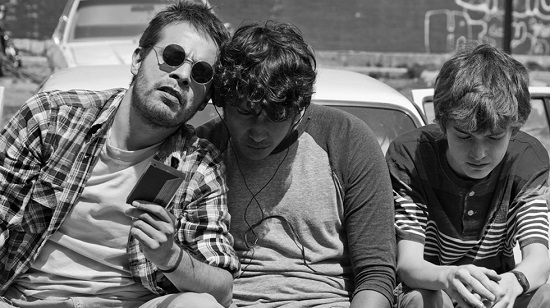
A black and white Generation X-flavoured odyssey played out across the vast expanses of Mexico City, Alonso Ruizpalacios’ excellent film captures a city in a permanent state of flux, a place of rousing student radicalism, irate social interchange and terrifying teenage thugs. Tomás, a 14-year old pendejo with an exasperated mother, goes to stay with elder brother Federico in the seething cauldron that is the capital. So begins the brothers’ quest for purpose amid the tumultuous urban backdrop, with Federico’s flatmate Santos along for the ride. Tomás is determined to track down ailing singer Epigmenio Cruz, a musical hero of their late father, while for Federico, cruelly nicknamed Sombra (Shadow) due to his dark complexion, the main interest in the student occupation of the university comes in the form of alluring student leader Ana. The film thrives on a brilliantly-developed rapport between the four leads, whose conscientious values are offset by a clumsy innocence, and an acerbic script loaded with observational insight.
Night Bus (dir: Simon Baker)
That chariot of hell’s demons, otherwise known as the 73 from Tottenham Court Road on a Friday night, gets its own starring role. In a society where taking a taxi means not eating for the next fortnight, London’s night buses are, depending on your perspective and how much you’ve had to drink, the harbinger of salvation or the rising tide of calamity on which you will fall asleep and wake up somewhere in Zone 6. It is a very particular type of human interaction that takes place aboard late-night public transport, captured here by first-time director Simon Baker in a fascinating portrayal of the city’s nocturnal microcosm. Set entirely within the environs of one specific journey, this is a story told a thousand times each and every night.
Chasing Berlusconi (dir: Ole Endresen)
The title could refer to pretty much any law enforcement agency across Europe, but the randy stallion of this oddball comedy is in fact a thoroughbred racehorse, on hand to reverse the fortunes of Edward Schultheiss’ fading champion jockey. But Berlusconi’s prize potential attracts a hoard of hustlers intent on reaping the rewards for themselves. Schultheiss plays it like a Norwegian Will Ferrell as he finds himself caught up in some serious horseshit. With shades of early-Guy Ritchie and Judd Apatow, and set against a wilfully brash backdrop of Scandinavian eccentricity, this is the follow-up to Endresen’s King Curling, a film which made curling look akin to the torture scene in Reservoir Dogs. There’s evidently no room for runners up in the director’s farcical world of sport-related mayhem.
Songs from the Forest (dir: Michael Obert)
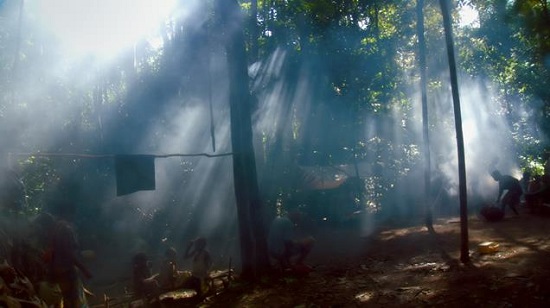
Sick of hearing the same commercial crap everywhere you go? Vexed by big business’ appropriation of good music for its own capitalistic gains? Enraged by widespread bandwagon-jumping on everything from bluegrass to afrobeat to minimal techno? If so, you could do a lot worse than take a leaf out of Louis Sarno’s book. The New Jersey resident once heard something on the radio that intrigued him. His quest to locate the source of this music took him deep into the jungle of the Central African Republic, where he encountered the Bayaka people and decided that, actually, living with them was better than trying to survive in the thick of the rat race. For over 20 years, Sarno was part of the Bayaka community, before eventually returning to the US as an outsider. Director Obert is a German writer and journalist whose travels to remote parts of the world make him the perfect narrator for Sarno’s story, which is adorned with stirring imagery of the forest and the spiritual harmonies of Bayaka song.
Spanish Affair (dir: Emilio Martínez-Lázaro)
A holiday shag opens up a can of worms and unwittingly taps into themes of Spanish separatism. Amaia spends a final passionate night in Seville with a local barman (no word on whether he works at Casa Manolo, which served the best fried puntillitas in the city when I enjoyed an extended stay there), before heading back home to the Basque Country. She soon realises that Rafa, said Andalusian barman, is hot on her heels, a situation unlikely to go down well with her proudly Basque family. The Other Side of the Bed director Martínez-Lazaro returns with an Almodóvarian tale of convoluted sexual relations that holds a mirror up to Spain’s fascination with nationalism and regional identity.
In the Basement (dir: Ulrich Seidl)
Ever since the Josef Fritzl case, Austrian basements have developed something of a bad reputation. This seems unfair, as surely the majority perform standard functions, storing a ping pong table or boxes of old junk, or perhaps even being rented out to a lodger so as to bring in a bit of extra bread for hardworking families. A labour of love for director-producer-writer Ulrich Seidl, this quirky documentary aims to redress the balance as Seidl asks his countrymen to open their subterranean spaces to the audience. Some people get up to extraordinary things below ground: the dominatrix is a character and the old lady with the dolls is rather eerie, while the neo-Nazis and their deluded ramblings are nasty pieces of work, but nowhere near Fritzl’s league.
Court (dir: Cahaitanya Tamhane)
We all know that music is a corrupting and evil influence on the world, but does it really have the power to make us act against our will? OK, so even a brief blast of Blunt or the Chili Peppers is enough to make me smash my living room to pieces, but generally you’d think that non-musical factors are more likely to govern human behaviour. Echoing the 1985 Judas Priest trial, in which the band were accused of filling their music with subliminal messages that encouraged two young men to shoot themselves, Tamhane’s Mumbai-set drama centres on a radical folk singer who goes on trial for allegedly instructing a man to commit suicide through his music. The charges might seem like hokum, but Tamhane injects his narrative with a disturbing realism that asks what happens when the changing face of this mega-nation clashes with longstanding reactionary doctrine. Court was a worthy recipient of Best Film in the Orizzonti section at last month’s Venice Film Festival.
Timbuktu (dir: Abderrahmane Sissako)
In 2012, Islamic militants took control of a large area of northern Mali before being ousted by government and French forces. While the insurrection made global headlines, Sissako’s eloquent film looks at the personal stories involved, as scores of heavily-armed men occupy the famous city of the title. At first, it’s something of a jihadist Dad’s Army – would-be young militants who’d prefer to listen to rap and argue about football – but more extremist factions soon take control, as detentions, lashings and stonings are imposed upon a stricken population. The desert landscapes are a dusty canvas, dotted by dazzling flashes of colour, that are brilliantly captured by cinematographer Sofiane El Fani, who worked on last year’s Cannes winner Blue is the Warmest Colour. Director Sissako depicts a courageous people in a time of upheaval and repression as this utterly absorbing film builds to a powerful climax.
Electric Boogaloo: The Wild Untold Story of Cannon Films (dir: Mark Hartley)
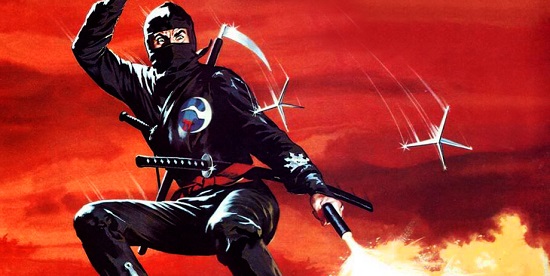
Question: What’s better than a Chuck Norris film? Answer: Virtually anything (Pah! ed.). But back in the 80s, the bearded bell-end was a big star on the books of Cannon Films, the US-founded, Israeli-owned company behind neo-con revisionist fare such as Chuck’s Missing in Action, the Death Wish series with Charles Bronson, and a whole host of other low-budget, high-octane B-movies. Critically derided, morally repulsive and commercially lucrative, the Cannon output perfectly captured the cock-waving bravado of 80s Reaganism and was a defining aspect in Western pop-culture’s treatment of the Cold War. Fanboy director Mark Hartley follows up earlier documentaries on Australian and Filipino exploitation films with this nostalgic look at the Cannon Films heyday, when taking out swathes of commie scum before breakfast was part and parcel of being an All-American Hero.
The Goob (dir: Guy Myhill)
Sean Harris and his evil face have carved out a sterling career playing unhinged villainy. In last year’s Southcliffe, his Gulf War-vet went on a rampage round a small town, while he was the best thing about the otherwise-naff The Borgias, in which he played the slippery assassin Corella. In this debut from director Guy Myhill, Harris is the cheating and abusive Gene, whose girlfriend Sienna is mother to Liam Springs’ eponymous antihero. Rory Delap-alike Goob is cruelly undermined and bullied by Gene each time he seeks to branch out on his own, eventually finding solace among migrant field workers in the eerily-barren Norfolk countryside. Myhill constructs a keenly-felt sense of menace to craft a compelling drama that echoes doyens of Brit social-realism like Shane Meadows and Andrea Arnold.
The World of Kanako (dir: Tetsuya Nakashima)
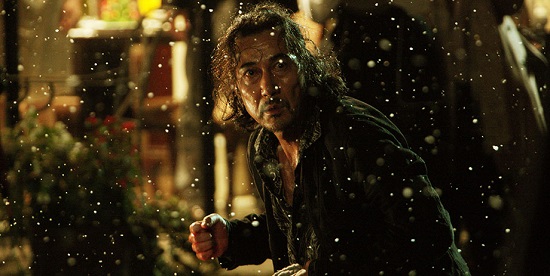
For all Japan’s Buddhist eloquence and cultural etiquette, it doesn’t half produce some mean cinematic psychos. Following on the heels of Ichi the Killer and Asami, the terrifying femme fatale of Audition, Akikazu is a seriously pissed off ex-cop whose teenage daughter Kanako goes missing one day. He sets off on a mission to find her, laying waste to anyone who gets in his way or who he suspects of involvement in her disappearance. But, as we learn, Kanako also has some pretty dark habits, giving legs to the old adage ‘you can take a girl away from her nutcase vigilante father, but you can’t stop her being a nutcase vigilante herself’. Nakashima lets the good times roll as he reconfirms his status as Takashi Miike’s natural heir.
Nas: Time is Illmatic (dir: One9)
Once there was a house, somewhere in London, where there lived a group of young men, and in that house Nas’ humdinger of a debut Illmatic was on heavy rotation. Widely regarded as a modern classic, even though twenty years have somehow elapsed since Nasir bin Olu Dara Jones confirmed to our younger selves that life was indeed a bitch and we would all then die, Illmatic has stood the test of time and seen its great orchestrator enter the annals of hip hop aristocracy. Tunes such as ‘Represent’, ‘One Love’ and ‘N.Y. State of Mind’ resonate as powerfully today as they did back before hip hop ate itself. One9’s (possibly a nickname) biographical film explores the making of Illmatic and the album’s ongoing legacy.
For more information on screenings go to the BFI website: http://www.bfi.org.uk/lff

